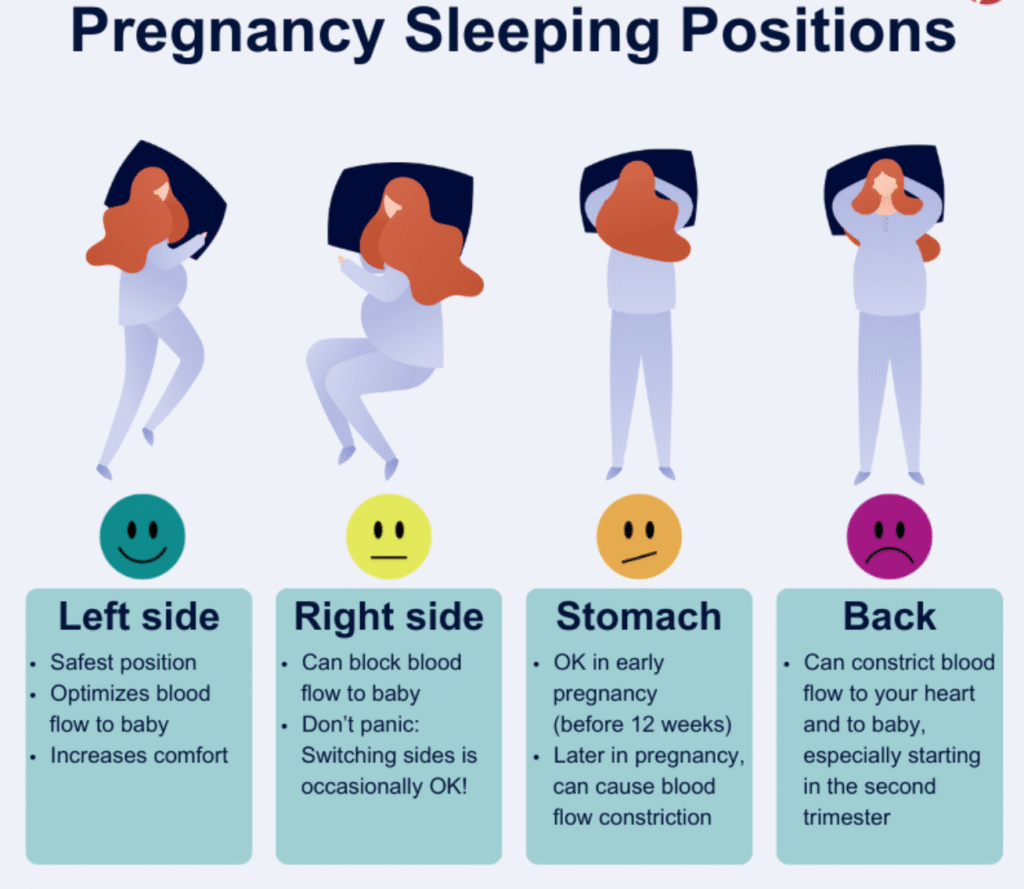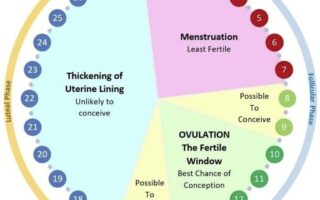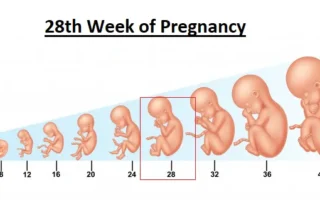Miscarriage, the spontaneous loss of a pregnancy before the 20th week, is a distressing and emotionally challenging experience. While not all miscarriages can be prevented, understanding the potential causes and taking proactive steps can significantly reduce the risk, especially during the critical first trimester. Here, we explore key topics and expert-backed advice to help lower the risk of miscarriage.
Best Sleeping Position to Avoid Miscarriage
While there is limited direct evidence linking best sleeping position to avoid miscarriage in the first trimester, doctors recommend sleeping on your side, preferably the left side, as pregnancy progresses. This position promotes optimal blood flow to the uterus and fetus. In early pregnancy, comfort and reducing stress are more crucial than sleeping position. Please follow the below-mentioned picture to Avoid Miscarriage chances.

Medicine to Prevent Miscarriage in the First Trimester
Certain medicines to prevent miscarriage in the first trimester may help, especially for women with underlying health conditions:
- Progesterone supplements: Often prescribed for recurrent miscarriage or progesterone deficiency.
- Blood thinners (e.g., low-dose aspirin or heparin): Recommended for women with blood clotting disorders.
- Metformin: Sometimes used in women with PCOS. Always consult your doctor before taking any medications during pregnancy.
How to Prevent Miscarriage in First Trimester
To understand how to prevent miscarriage in the first trimester, focus on healthy lifestyle choices and proper medical care:
- Get early and regular prenatal care.
- Manage chronic health conditions.
- Avoid harmful substances like tobacco and alcohol.
- Minimize stress.
- Avoid harmful environmental exposures.
Things That Can Cause a Miscarriage in the First 8 Weeks
There are various things that can cause a miscarriage in the first 8 weeks, including:
- Chromosomal abnormalities.
- Hormonal issues.
- Uterine conditions.
- Infections.
- High fever or trauma.
- Substance abuse.
Vitamins to Prevent Miscarriage
Below, I have listed some important vitamins you should take based on your body’s needs and requirements. Taking the right vitamins to prevent miscarriage is vital:
- Folic Acid, Vitamin D, B6, B12, Iron, and Zinc are all important. These support fetal development and maternal health.
What Foods Help Prevent Miscarriage
Eating foods that help prevent miscarriage can strengthen your body:
- Leafy greens, berries, citrus fruits, whole grains, lean proteins, and dairy are excellent choices. Avoid unsafe food like undercooked meat or unpasteurized dairy.
How to Prevent Miscarriage in Early Pregnancy with PCOS
Women with PCOS are at higher risk of miscarriage, but a few mindful habits can help reduce this risk. Eating a healthy diet and staying physically active can support hormone balance and a healthy weight. Taking prescribed medications like metformin may help manage insulin levels. Regular monitoring of hormone levels and prenatal checkups is essential. Managing stress through relaxation techniques like meditation or gentle yoga can also make a positive difference.
For those with PCOS, knowing how to prevent miscarriage in early pregnancy with PCOS is crucial:
- Maintain a healthy lifestyle.
- Consider medications like metformin.
- Monitor hormone levels.
- Reduce stress.
What Habits Can Cause a Miscarriage
Certain daily habits may increase the risk of miscarriage, especially in early pregnancy. Ignoring prenatal care and poor nutrition may also contribute to complications.
Below, I have mentioned some habits that can cause a miscarriage, such as:
- Smoking, drinking alcohol, excessive caffeine, drug use, and neglecting prenatal care. These can severely impact fetal health.
Key Takeaways for a Healthy Pregnancy Journey
Although some causes of miscarriage are beyond your control, adopting a healthy lifestyle, seeking early prenatal care, and staying informed can significantly lower the risk. Always consult your healthcare provider for guidance tailored to your individual needs.
References: NHS, WebMD, Healthline, Cleveland Clinic, Tommy’s, ScienceDirect, Care Insurance Blog
https://pmc.ncbi.nlm.nih.gov/articles/PMC8721648
https://www.healthline.com/health/pregnancy/how-to-prevent-miscarriage
The First trimester is very crucial, and most people don’t know about miscarriage. There are a lot of ways that, in the early pregnancy, miscarriage can be prevented by taking some precautions, such as fruits, vegetables, and essential nutrients, which can support a healthy pregnancy, according to the NHS. Folic acid is crucial for preventing neural tube defects and may reduce the risk of miscarriage, according to WebMD.





This article offers valuable insights for expecting mothers. Preventive tips like these can make a real difference during early pregnancy.